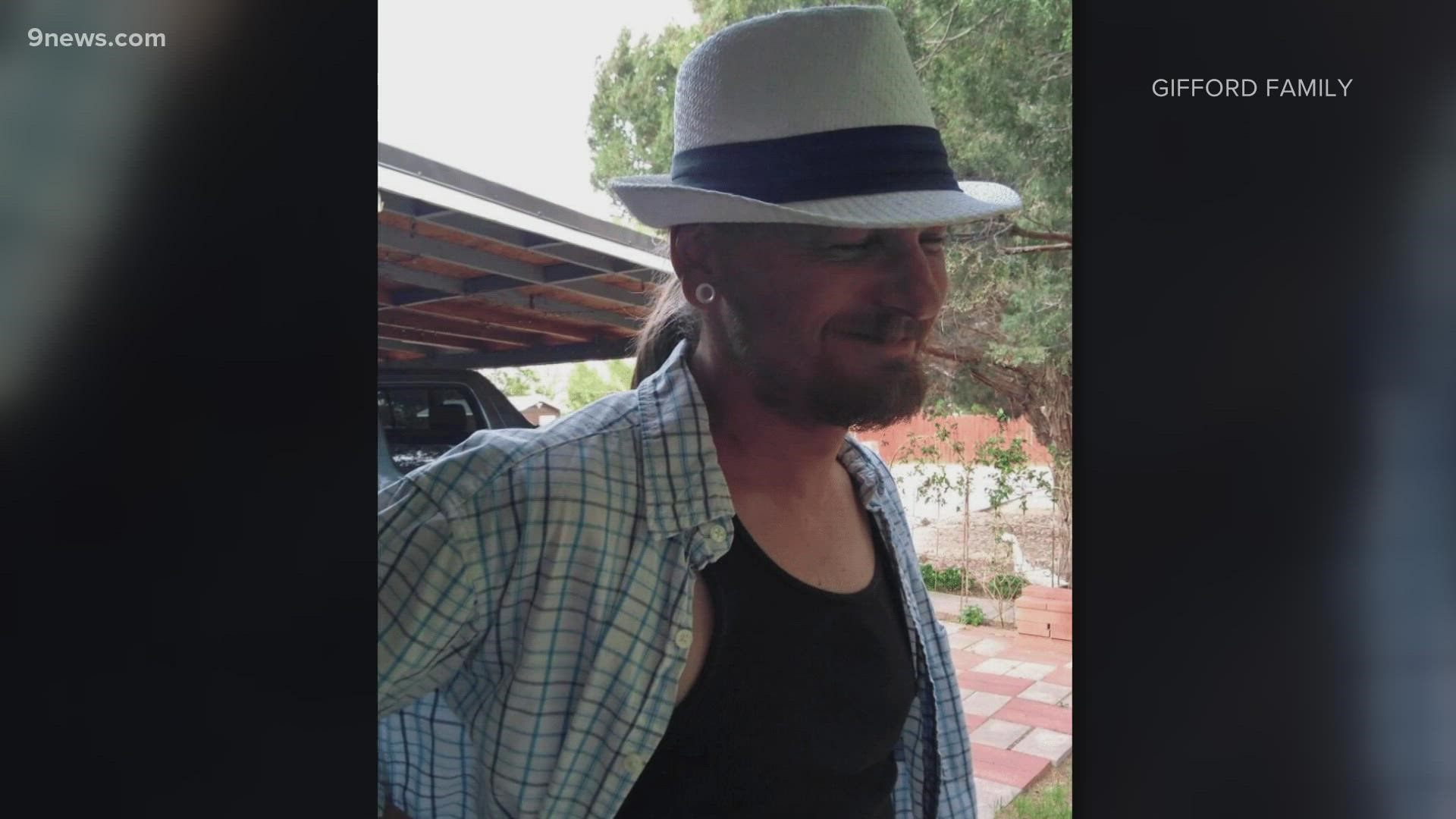KIOWA, Colo. — Kiowa County Sheriff’s Department’s pattern of condoning illegal searches and tolerating excessive force led to last year’s killing of a handyman by the local undersheriff and a rookie deputy, a federal civil rights lawsuit alleges.
The complaint filed this morning on behalf of the late Zach Gifford’s family comes as one of his shooters, former Kiowa County Sheriff’s Deputy Quinten Stump, is scheduled to stand trial in January on criminal charges stemming from the homicide.
The other shooter, former Undersheriff Tracy Weisenhorn, faces no criminal charges despite having fired the first shot. She was fired in March.
“This whole mess has been swept under the rug for too long,” father Larry Gifford says of the traffic stop that led to his son being gunned down and bleeding to death in a field.
“We need some manner of justice for Zach.”
Gifford, 39, was a lifelong Eads resident and handyman known throughout the county for volunteering his carpentry and other services to locals who needed help with their homes.


On April 9, 2020, he was helping a friend, Bryan Morrell with some renovations in Brandon, a ghost town on the east end of Kiowa County, as Undersheriff Weisenhorn was staking out the house on drug suspicions. Morrell needed to unload some machinery, and drove briefly onto the nearby state highway to reposition his truck when Weisenenhorn pulled him over for his failure to use a turn signal.
Stump arrived on the scene and patted down Gifford, who had been riding as a passenger. The deputy found no weapons before reaching into Gifford’s coin pocket for a small baggie that later tested positive for methamphetamine residue.
Gifford bolted. Both Weisenhorn and Stump fired at him as he ran, striking him three times in the back. Gifford dropped and then died minutes later.
As the Colorado News Collaborative reported earlier this year, his killing rattled the 1,500-person county in far Eastern Colorado – a community with deep and longstanding trust in law enforcement. Even in the era of George Floyd and national uproar about police killings, residents there were loath to question why Sheriff Sheridan was saying nothing about Gifford’s homicide. They were also loath to question what turned out to be missteps in a killing that ultimately led to the firing or resignation of more than half of the seven-person sheriff’s department, including Sheriff Casey Sheridan himself, who resigned from his elected seat in June.
The lawsuit names Sheridan, Stump and Weisenhorn, along with Kiowa County Commissioners and their new appointed sheriff, Forrest Frazee, as defendants.
County Manager Tina Adamson said this morning that she and commissioners had not read the complaint and couldn’t comment.
Frazee said, “I have not looked into the Gifford case on purpose. We get asked what’s going on. I do not know. I know when it’s all over with, we will institute training and we will bring this department up to speed.”
“As you can understand in Kiowa County, it’s a very touchy thing,” he added.
Stump, through his lawyer, said he would not discuss the case. And Sheridan and Weisenhorn could not be reached for comment.
Weisenhorn’s name leads the list of defendants partly because she initiated the traffic stop in what the suit alleges was a pretext for an unconstitutional search for drugs. The complaint notes that she also fired the first shot and, as Stump’s supervisor, did nothing to stop him during the 18 seconds before which “he took aim and finished what she had started” by firing the fourth and final shot as Gifford continued to run.
It alleges that, because Stump had patted down Gifford and found no weapons, and because Gifford made no threats, neither he nor Weisenhorn had probable cause to believe he posed a threat to them or others.
The complaint also accuses Sheriff Sheridan of ignoring what should have been earlier red flags about Stump. It cites two times in the six months before Gifford’s killing when the rookie deputy used deadly force to stop unarmed suspects from fleeing. Because Stump was not disciplined for either of those incidents, and because the sheriff’s department and county commission did not have him retrained in use-of-deadly-force procedures, the complaint argues that excessive force was an accepted practice and de facto policy of the department.
It points out that Stump was supposed to be on suspension the day of Gifford’s killing after Weisenhorn disciplined him for mocking her, refusing to obey commands, and other insubordination. Yet even in his suspension letter, Weisenhorn had commended Stump for “doing better with trying to find other violations on your stops ... and trying to search vehicles” – evidence, the complaint argues, that the department condoned illegal searches.
It cites the fact that Sheriff Sheridan did not discipline either Stump or Weisenhorn for Gifford’s killing as further evidence of his comfort with their actions.
Sheridan did later fire Stump last November, but in connection with an unrelated incident – shooting up a traffic sign with his county-issued gun while drunk. Stump was indicted in January on two counts of attempted second-degree murder and one count of assault with a deadly weapon, making him one of few officers prosecuted for an on-duty killing in Colorado. That is the criminal case scheduled for trial in January.
Weisenhorn, for her part, continued working for the department until almost a year after Gifford’s killing until Sheridan fired her in March of this year – the same week the Colorado News Collaborative’s investigation was published – with no mention of Gifford’s killing.
The lawsuit seeks compensatory damages for Gifford’s pain and suffering as he died, the loss and value of his life, lost economic benefits and services that he provided to the community, and funeral expenses. It also seeks punitive damages against Weisenhorn, Stump and Sheridan individually, as well as attorneys’ fees.
The amounts of those damages would be determined at trial if the case is not settled beforehand.
“You know, we still haven’t even gotten an apology from anyone at the county about what they did to Zach,” Larry Gifford says. “That would have meant something to us.”
>This story is brought to you by COLab, the Colorado News Collaborative, a nonprofit coalition of more than 150 newsrooms across Colorado working together to better serve the public. Learn more at https://colabnews.co.
SUGGESTED VIDEOS: Full Episodes of Next with Kyle Clark

